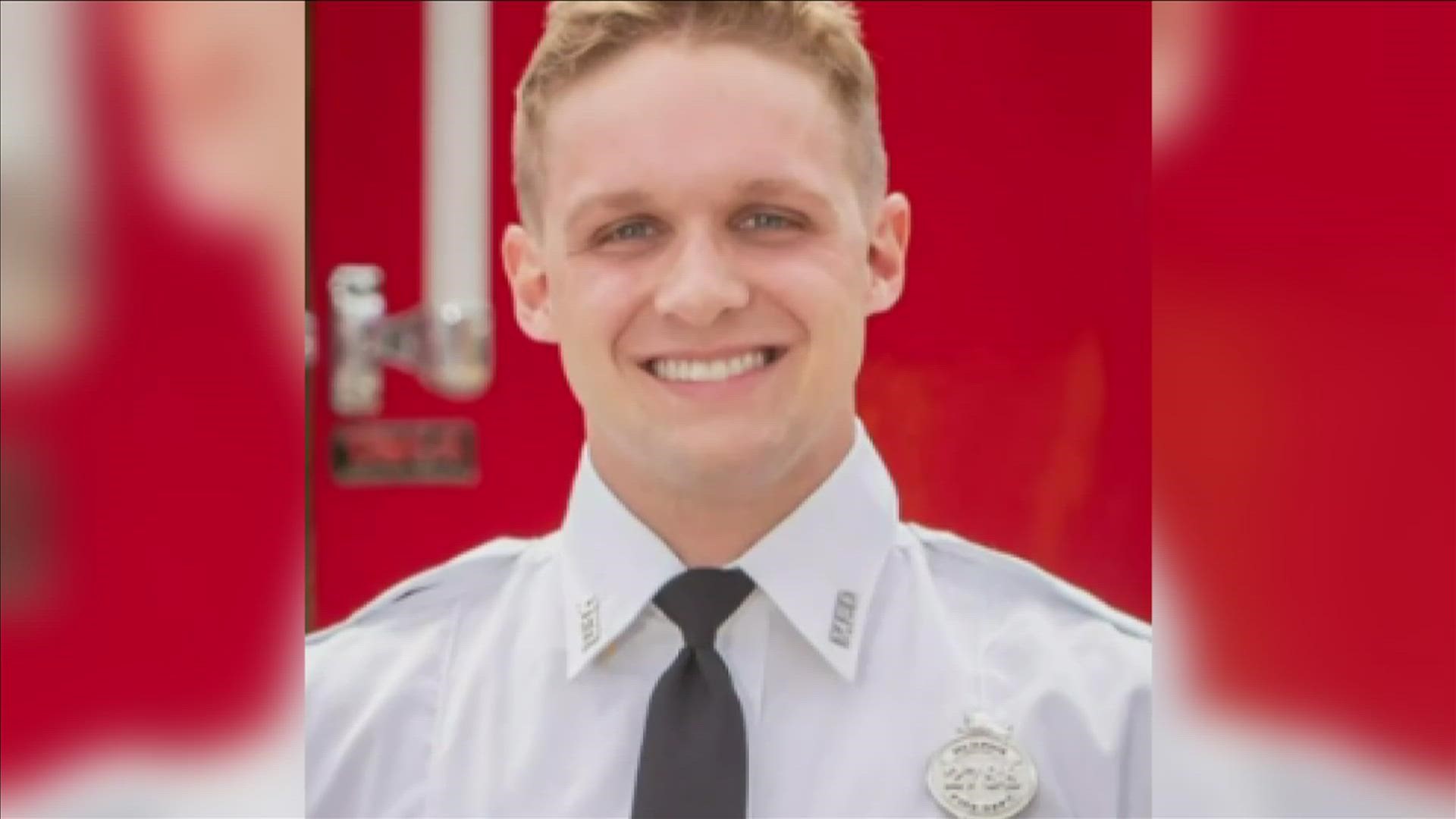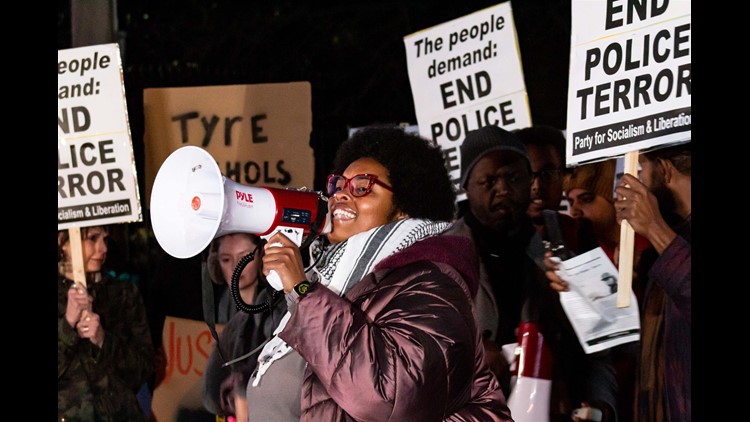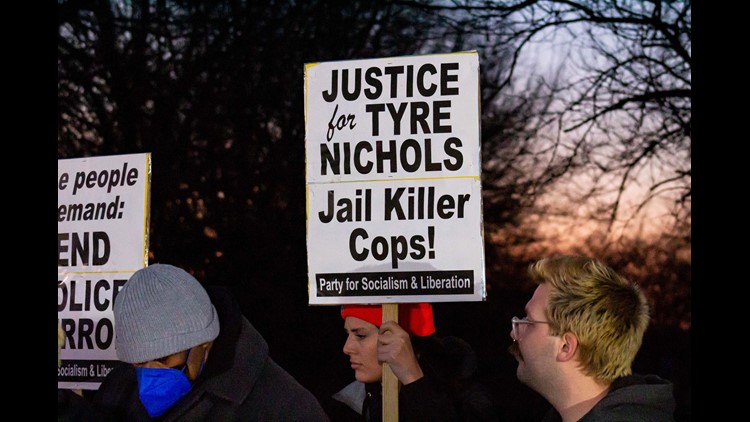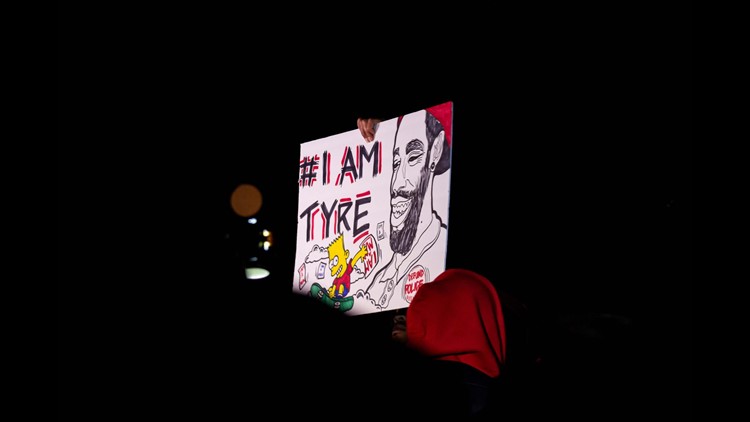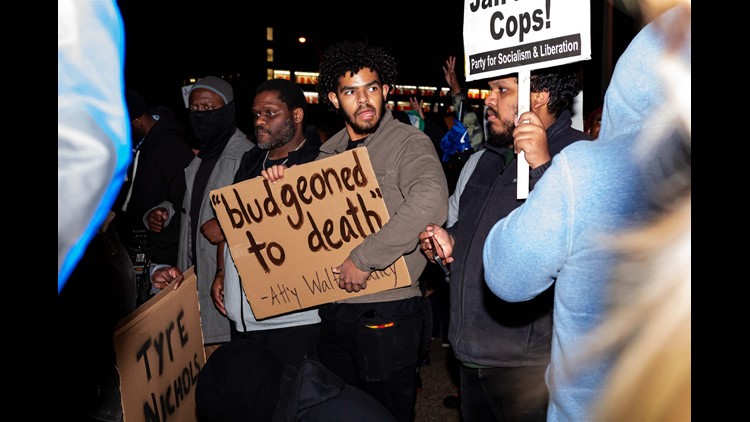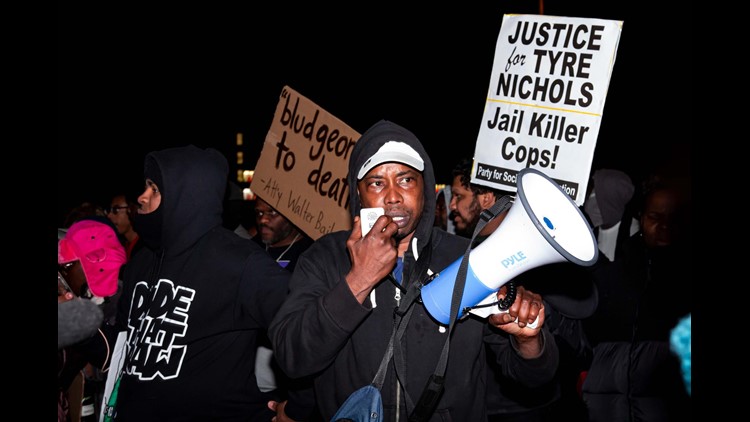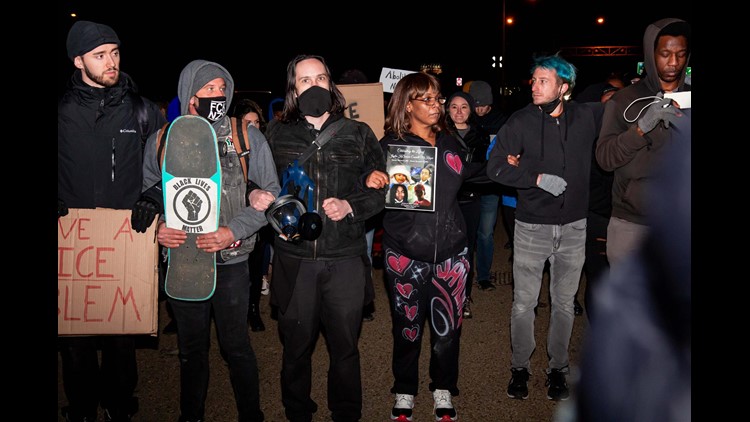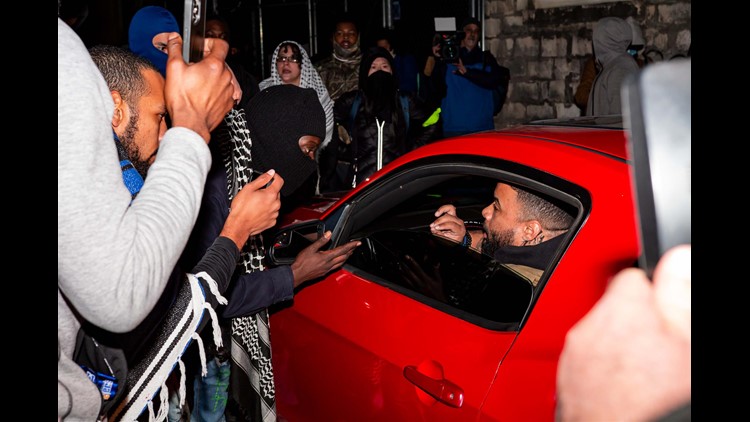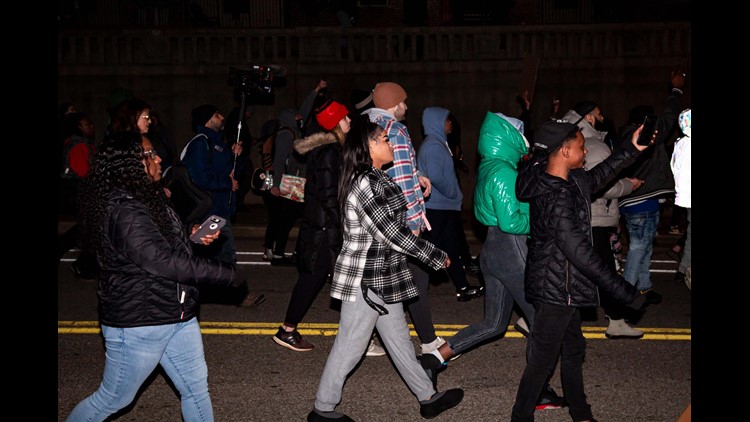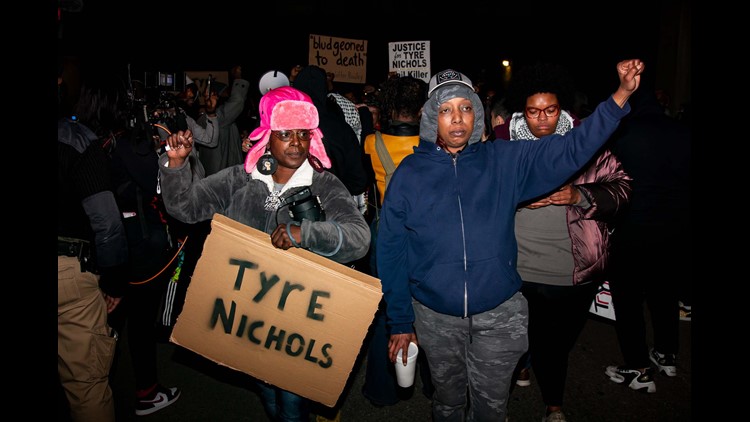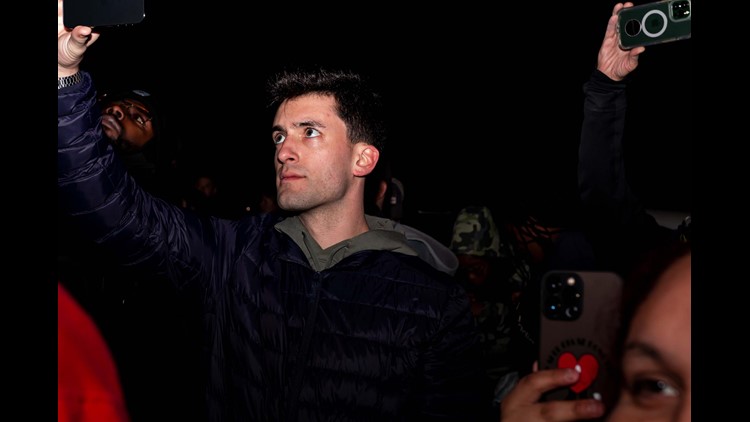MEMPHIS, Tenn. — A former Memphis Fire Department emergency medical technician told the Tennessee Department of Health on Friday that officers “impeded patient care” by refusing to remove Tyre Nichols ' handcuffs, which would have allowed EMTs to check his vital signs after he was brutally beaten by police.
Robert Long, whose license was suspended for failing to give aid to Nichols and who has also been fired, appeared by livestream before the state Emergency Medical Services Board to share his version of events.
He provided details about how he and another EMT, JaMichael Sandridge, responded after five Memphis police officers had punched, kicked and hit Nichols with a baton during an arrest following Nichols fleeing a traffic stop Jan. 7.
Long and Sandridge were fired by the department Jan. 30. Their licenses were suspended by the board Feb. 3, after members watched a 19-minute video taken at the beating location.
Officials said the EMTs failed to render aid to Nichols, who died three days after the beating.
The board determined that Long and Sandridge did not perform basic emergency medical examinations while Nichols was handcuffed on the ground and slumped against a squad car, documents obtained by The Associated Press showed.
Nichols showed “clear signs of distress, such as the inability to remain in a seated posture and laying prone on the ground multiple times,” the documents showed.
Both Long and Sandridge failed to initiate a primary examination, which could have helped identify the presence of any life-threatening injuries, the documents showed.
Nichols’ vital signs were not checked, he did not receive high-flow oxygen or an intravenous line, and he was not placed on a heart monitor.
The two EMTs were joined at the arrest location by a third fire department employee, Lt. Michelle Whitaker, who officials said remained in the fire engine with the driver during the response to Nichols’ beating. She has since been fired, but it was not immediately clear if the state board would take action towards suspending her license.
Memphis protests seek justice for Tyre Nichols
The five officers who were seen on video beating Nichols have been fired and charged with second-degree murder. They have pleaded not guilty.
Before Long testified Friday, his lawyer, Darrell O'Neal, noted that the 19-minute video taken by an elevated pole camera and seen by the board did not have sound, and it did not capture what was said during the violent arrest.
Long gave a detailed account of what officers, Nichols and he himself said.
Long said he approached Nichols and saw that he had “a bump on his head, a busted lip and a dried bloody nose on both nostrils,” but that he answered “Tyre Nichols” when asked his name.
He also said Nichols then asked him for help standing up and to remove the handcuffs. Nichols repeated this request several times, Long said.
Long said he repeatedly tried to place a monitor on Nichols to check his vital signs, including blood pressure, but Nichols would roll away. Long said he interpreted this movement as Nichols rejecting care and refusing cooperation.
“He wouldn't stay still for assessment,” Long said.
Long said he did not force the blood pressure cuff onto Nichols or hold him down in fear of being accused of assault.
He also said he asked Nichols if had been using drugs or alcohol, and Nichols said he had only been drinking. Long said he interpreted some of Nichols' movements, including being slumped against the car or on the ground, as the result of drinking alcohol.
At one point, officers leaned over Nichols and were “in his face, saying loudly that the patient is not going anywhere and that they are not going to uncuff him, impeding patient care," according to Long.
They continued to impede his care, Long said.
Eventually, Nichols stopped moving and became unresponsive, Long said. An ambulance arrived, and Nichols was taken to a hospital. Officials have said 27 minutes elapsed from the time the EMTs arrived on the scene to the moment the ambulance left for the hospital.
Matt Gibbs, an Tennessee Department of Health lawyer, asked Long if a field sobriety test or a blood alcohol exam had been administered. Long said he was not aware if those were done.
Long also acknowledged that Nichols never verbally refused care from the EMTs, and he spent several minutes without directly engaging with Nichols.
Long's lawyer called a former Memphis paramedic and EMT, John Holloway, as an expert to testify. Holloway praised the actions that Long took and said that if he had touched Nichols, Long may have been in danger of accusations of assaulting him. Holloway said he did not believe Long would be a danger to the public if allowed to resume working as an EMT.
Holloway also noted that Long was the lowest ranking EMT on the scene, and the other two fire department employees who had more years of experience failed to step in to help.
Holloway also said that Nichols could have been moving away from Long for a number of reasons. One board member suggested that Nichols could have been moving away from Long because Nichols was scared of being beaten again.
After fours hours of testimony and questioning, the board voted to keep Long's suspension in place.

